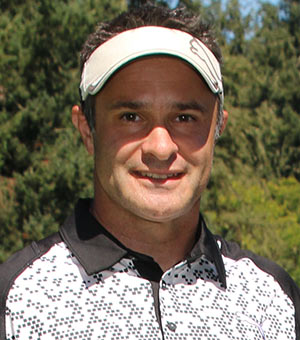Several years ago, Club Green Meadows in Vancouver decided to add natural grass areas to places that were difficult and time consuming to mow. A few of the areas were in play, but many were placed strategically between greens and tee boxes. The result was patches of long grass that browned during the summer.
“We only mow the natural areas once a year,” said Superintendent Peter Goodling. “I thought it would be a good idea to add a little color and, at the same time, help give bees an improved habitat.”
The decision was made to enroll in Operation Pollinator.
The Operation Pollinator initiative was developed 15 years ago by Syngenta, one of the world’s leading manufacturers of agronomic systems for the golf industry. Participating courses can purchase specially selected wildflowers designed to attract a variety of pollinators and provide habitat for small mammals and birds.
“Most of the time, people think the habitat is only for bees,” said Syngenta Territory Manager Randy Rider. “But these plantings are also meant to attract butterflies and other natural pollinators.”
In fact, there are thousands of types of bees responsible for pollination, as well as butterflies, beetles and birds.
With the bee population declining throughout the world and especially in the United States, it’s a good thing that Club Green Meadows isn’t alone in this endeavor. In Clark County, courses like Camas Meadows and Tri-Mountain are both participating and providing additional habitat areas for pollinators.
According to Rider, it’s hard to get an exact count on the number of Northwest courses participating. There are facilities that plant flowers and post signs, but many simply develop the habitat and then maintain them.
“This is something that courses could really promote, but many of them are simply being good stewards of the environment and giving back to their local community,” added Rider.
Homeowners also helping out
In addition to local golf courses encouraging habitat for pollinators, several outlets are helping homeowners learn more.
Washington State University Vancouver shares extensive information on its website from WSU Extension Clark County Master Gardener John Moore. In addition to basic information and a roadmap for making an area pollinator-friendly, workshops are scheduled periodically for a hands-on look at gardening for pollinators.
Clark County Public Health has teamed up with WildWatch and Clark Green Neighbors to provide education and information on pollinators. Children at this year’s Clark County Fair were able to stop by the county’s booth to learn about bees and butterflies, and go home with packets of seeds that encourage pollinators.
Finally, nurseries like Shorty’s Garden Center offer seeds and starts to help make a yard ready to welcome more varieties of bees, butterflies and hummingbirds.
With roughly 75 percent of the nation’s crops and flowering plants being pollinated by species that are on the decline, it’s important to start locally and make sure Clark County is providing the proper habitat at home and on the golf course.
Kris Fay is the editor of Northwest Golf Adventures Magazine.






